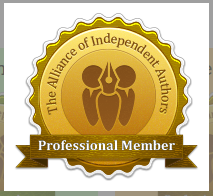|
I'm delighted to welcome my good friend, crime writer Tony Forder, to my blog today! It's been over two years since we last chatted here (see link: Interview with Tony Forder) so I thought it was time to catch up with Tony and his writing. Let's get started! 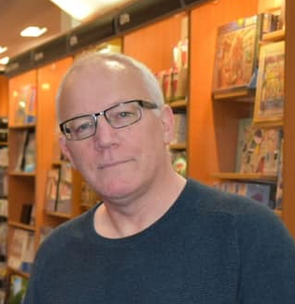 I’d like to know more about your latest novel. What can readers expect to encounter in its pages? Darker Days to Come is the ninth full-length novel in my DI Bliss series. As with most of my books, I hope readers will find the storyline complex and entertaining, intriguing and compelling, with characters they can genuinely believe in. It’s a strange twist of fate that leads Bliss and his team to the crimes committed here, and from the little kernels if information scattered around none of them expect the cases to grow in the way they do, nor take the paths they have to follow. The subject matter is disturbing at times, but I hope I’ve handled it sensitively. Any news or hints about your next novel? I’m in the throes of writing two, waiting for one to really take hold. Ideally, I would have finished my second DS Chase novel, The Predators, first, but I seem to be preferring the next Bliss, The Lightning Rod, so currently I have no idea which of these will be published next. Tell us about yourself and what you get up to when you’re not writing. Having moved earlier this year I’m enjoying settling into village life and creating a new home. I enjoy football and rugby, I’m a bit of a movie buff, but probably my biggest passion is music. I listen to music every day, and having played guitar since I was about the age of 10, I still get some practice in several days a week. I keep my guitars – all 4 of them – in my office, so when I need to take a break from writing I slide over in my chair and get my fingers working in a very different way. Who is your favourite novelist? At one time the answer would most definitely have been Stephen King. His imagination and ability to write creatively are on a par with the very best. These days, and since the early noughties, it’s Michael Connelly, best known for his Harry Bosch character. He's the king of crime in my view. 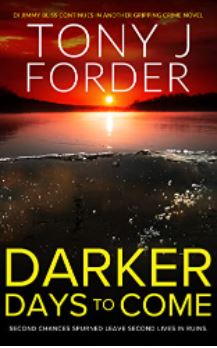 Do you have a special time to write? A writing routine? When writing a first draft I work 6-8 hours a day, 5 days a week if at all possible. My style is to get the story out of my head in that draft. The edit is where the book comes alive, and when I’m doing the first structural edit I work the same hours. With each edit I spend less time per day on the task, as I find myself scanning rather than reading accurately. Your mind plays tricks and fills in the gaps to the point where you ‘read’ missing words and your brain autocorrects typos without you noticing them. Where do your ideas come from? I wish I knew. In truth, they come from anywhere. My book Fifteen Coffins grew from that title, which popped into my head for no apparent reason. I have written storylines based on real cases – an interesting unsolved case in the US became the source of my Bliss novel, The Death of Justice. As ideas occur, I make notes. Those notes go into an ideas book, and every so often I go through each page, adding or subtracting, until hopefully one of them will do the trick for me. Last year I was struggling, and in a 30 minute spell I sat down and plucked 4 storylines from out of nowhere. One of them went on to become Darker Days to Come, and another will be The Lightning Rod, the next Bliss book. If I do use real-life, I tend to put my own spin on it, coming at it from a different perspective. What book are you reading at present? I just finished Jaws. It’s the first time I’ve read it in a couple of decades, but I remember it well from when it first came out. It’s one of only 2 books I’ve read in a single sitting – the other being King’s The Shining. Jaws didn’t quite live up to my memory of it, and the film got in the way to a certain extent. So yes, it’s dated, but in its time it was amazing. What kind of research do you do? in a word... exhaustive. I use only a fraction of what I learn, but I’m keen to be as authentic and knowledgeable as I can be. As a crime writer you have to research not just police procedure but also some pretty grisly stuff. I’ve learned more about how to practice taxidermy on humans than I ever wanted to know, also the gruesome practice of necklacing – a flaming tyre wrapped around the neck – and numerous awful things human being are capable of inflicting on others. Who’s your favourite fictional bad guy/gal? Hannibal Lecter. It’s 41 years since his first appearance in Red Dragon, and even as a bit-part character in that you got a sense of his magnetism. Seven years later, Silence of the Lambs was published, and in my view Lecter remains the psycho by which all subsequent psychos are judged. A learned, brilliant academic with primitive urges. Where do you see your writing career being in five years’ time? Well, by then I will have had to retire DI Jimmy Bliss. Whether I continue with him as a more peripheral character in a spin-off series or simply allow him to go gentle into that good night, I don’t know. Perhaps when I put him away for good, I can focus more clearly on other things. In terms of readership and status I’ve probably peaked, but I have a dedicated following who for the most part enjoy my other works. I do want to write at least 2 more DS Chase books, plus the third and final volume in my Mike Lynch action-adventure series. There’ll be no change of style or genre, but perhaps a few more standalones. Frankly, I just hope I am still writing in 2027. Thank you, Tony! Readers, you can find out more about Tony and his books below. Tony J Forder is the author of the bestselling DI Bliss crime thriller series. The first seven books, Bad to the Bone, The Scent of Guilt, If Fear Wins, The Reach of Shadows, The Death of Justice, Endless Silent Scream, and Slow Slicing, were joined in December 2020 by a prequel novella, Bliss Uncovered. The series continued with The Autumn Tree in May 2021. Tony’s other early series – two action-adventure novels featuring Mike Lynch – comprises both Scream Blue Murder and Cold Winter Sun. These books were republished in April 2021, and will be joined in 2022 by The Dark Division. In addition, Tony has written two standalone novels: a dark, psychological crime thriller, Degrees of Darkness, and a suspense thriller set in California, Fifteen Coffins. The Huntsmen, released on 4 October 2022, was the first book in a new crime series, set in Wiltshire. It featured DS Royston Chase, DC Claire Laney, and PCSO Alison May. Tony lives with his wife in Peterborough, UK, and is a full-time author. He is currently working on DI Bliss #10 and the second DS Chase novel. All of Tony’s links can be found on Linktree: https://linktr.ee/TonyJForder Tony's latest book in the DI Blkiss series, Darker Days to Come, can be viewed here: Darker Days to Come.
2 Comments
This week I'm interviewing the lovely Sibel Hodge, a best-selling novelist who writes in a range of genres, including crime and thriller fiction. Welcome to my blog, Sibel! I’d like to know more about your latest novel. What can readers expect to encounter in its pages? 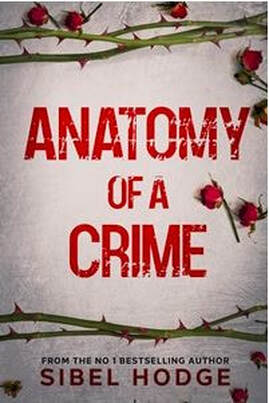 I love books told in an original way so I decided to write 'Anatomy of a Crime' in the format of a true crime podcast that I fell in love with listening to a few years ago. It's a twisty psychological-style thriller that leads readers on a dark, unpredictable journey... On the summer solstice in 2017, two girls walk into Blackleaf Forest. Only one comes out alive. Dubbed as the Sleeping Beauty Killer, and surrounded by rumours of witchcraft, Caris Kelly is sentenced to life in prison for murdering her best friend during a ritualistic thrill kill. Although Caris insists she is innocent, no one believes her. Then three years later, investigative journalist Lauren Taylor looks into the murder for her true crime podcast. She becomes convinced there's more to the flimsy witness testimony, sinister coincidences, and sensational press coverage and probes into the case. As prejudices are revealed, lies are uncovered, and secrets are blown wide open, a single question remains... is there really one truth about what happened that night? Or are there only different versions of the same story? Tell us about yourself and what you get up to when you’re not writing.When I'm not writing I usually spend a long time researching for the next novel! I also read 2-3 books a week. In my spare time you'll find me exercising, spending as much time in nature as I can, catching up with friends, and cooking. What have you written to date? 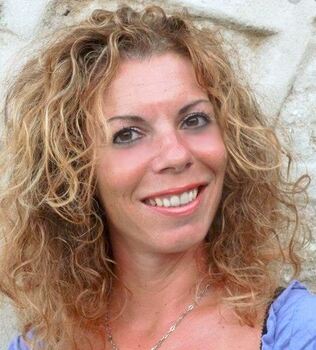 Novelist Sibel Hodge Novelist Sibel Hodge I've written ten thrillers, three romantic comedies, seven cozy mysteries, one contemporary romance, one young adult novel, one children's novel, two novellas, and three non-fiction, including two vegan cookbooks. I'm a hybrid author, published both traditionally and independently. When I first started writing I concentrated on romantic comedies and comedy/cozy mysteries that were a great fit for me at the time. But as my writing journey progressed, so did my life journey, and I wanted to start tackling darker subjects I could give a voice to as a writer that I felt weren't getting the mainstream attention they deserved. The first serious book I wrote in the crime genre was a novella about sex trafficking, and since then I've written multiple thrillers about many different types of trafficking, from exotic animals to organ trafficking, child and labour trafficking, and trafficking for ritual abuse. Do you have a special time to write? A writing routine? Do you work to an outline or plot? I'm very focused, so when I'm working on a first draft I get up about 6ish and then do some yoga and meditation before I start writing. I aim for 3000-5000 words per day. The first draft will usually take 3-4 weeks. As for plotting, I'm a total pantster! I know the underlying theme of a novel when I start writing, and most of my thrillers involve a lot of research that I have to condense into something readable, but I have no idea what's going to happen until I start writing. I let my characters lead the way. Where do your ideas come from? I like to write what I call true fiction. A lot of the novels I've written in the last ten years are inspired by real life events. I'm very passionate about animal and human rights and want to give a voice to darker subjects to raise awareness, particularly in tackling corruption, conspiracy, and women's issues. What book are you reading at present? 'Virus Mania' by Torsten Engelbrecht and Köhnlein Claus. Do you proofread/edit your own books or do you get someone else to do it?My hubby is my chief beta reader, which is great because he's not a reader so he'll point out a lot of things that I'm too close to see. If I'm indie publishing a book I'll send it out to a few more beta readers to get their helpful feedback. Then they all go to be professionally edited and proofread. Do you think the cover plays an important part of the buying process? Absolutely. And although I can't use a cover design program, I'll always have a clear idea in my head of how I want the cover to look so I can give as much visual instruction to the designer as possible. How do you select the names of your characters? I always get an idea in my head that fits a name to a personality type of the character I want. It's also a bonus to have the names of main characters as short as possible so it's less typing! What kind of research do you do? I do masses of research that sometimes spans years because I'm writing about real life events that I want to make as authentic as possible. I collate information from a huge range of sources from alternative news/mainstream media/investigative journalism/books/government agencies and reports/victims' accounts/documentaries. What is the first book to make you cry? 'Go Ask Alice' by Anonymous. I read it when I was about ten and it really stuck with me. What is the hardest/easiest thing about writing a book? The hardest? Collating and condensing the amount of research into something that weaves into the story seamlessly. The easiest? My books are very character driven, and I love getting inside my characters' heads. One of the things I find easy is expressing the psychology of their thoughts, actions, emotions, and personality. I think being an author is a lot like being an actor, but you have to wear all the characters' skins, not just one. Thanks, Sibel, for a great interview! You can find out moe about Sibel and her novels via her website, www.sibelhodge.com/
Today I'm delighted to welcome novelist Ian Skewis to my blog. Ian's first novel, 'A Murder of Crows', was published in 2017. A proud moment for any writer! Let's get going with the questions. Tell us about 'A Murder of Crows'.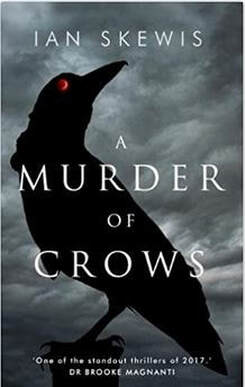 'A Murder Of Crows' is a crime thriller featuring DCI Jack Russell, who is on his final case before retiring. He is led to believe that the case will be relatively simple and it proves to be anything but. A serial killer has emerged and seems to be just getting started and it becomes a race against time to prevent the evolution of this new menace. Sounds great! What inspired the plot for the book? It was part inspired by an event that happened to me when I was nine years old. I was out for a walk in the country with my parents and we found a dead man hanging from a tree. My dad called the police and my mum kept me away from the site. But my imagination kind of filled in the gaps and from there a very strange little tale emerged. Needless to say, the countryside has long since taken on a rather more sinister aspect for me and this is very much evident in the book. This was in 1979. Now finally, the story, which I officially started writing in 1989, has taken flight as it were. Pun intended! What’s next for you? Will A Murder of Crow be the first in a series, and if so, can you give us any hints?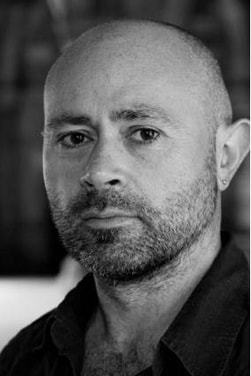 Novelist Ian Skewis Novelist Ian Skewis About three years ago I came up with an idea for a sequel of sorts but I was determined that I wouldn't write it unless I could find something really challenging about it - I think I now have a really good follow-up story - one that will take on some very surprising twists and turns. As for hints, it begins six months after A Murder Of Crows ends and will involve a psychic, a female detective and the return of an old enemy... What is your all-time favourite novel? Atonement by Ian McEwan is still my favourite. I loved the fact that this character felt so bad about what she had done to what were essentially two innocent people, that she completely rewrote their history in a book - an act of kindness, albeit many years too late. I was surprised at how good the film version was too. Books that comment in some way on writing and its gift to heal always appeal to me - Life Of Pi being another example. Do you prefer to read e-books or paper books?I always prefer paper, and in particular, paperbacks. They yield and become old, dog-eared and yellowed with age and there is something very human and comforting about that. Hardbacks are good too but they don't bend easily and are less portable, I feel. Do you think the cover plays an important part of the buying process?Absolutely! I had a whale of a time designing my book cover. My publisher actually sent me a three page questionnaire asking things like what font I wanted to use, how I would describe the contents of the story and what images did I reckon would be suitable for the cover. I always knew it would be a lone crow. I actually had some sketches from 2009 that I did when I could only dream of such things as book covers and it was amazing to be able to literally draw on that and see it come to life! I'm thrilled with the end result, and all thanks to Mark Ecob for being very patient and such a good collaborator. The book cover is very stark and haunting and the crow's eye contains other elements such as a blood red moon, and a farmer's scythe - all very symbolic... What is the hardest thing about writing a book?For me it was always a lack of confidence. I spent years listening to those doubts in my head telling me that I wasn't all that good, and who did I think I was, deigning to write? I know now that this was just my inner critic, which is healthy and no bad thing. But a healthy balance is what's needed. It goes back to believing in yourself and reaching for the stars but keeping one's feet on the ground. What is the easiest thing about writing a book?The freedom to do anything you like. One of the reasons I gave up acting (I was a professional actor) was that I always felt like part of a greater whole and often I had bigger ideas than that. Now as a writer I can conjure up entire worlds. I have the last word on everybody's destiny. That is an incredible palette to be able to work from. However, when you play God, and all writers do to a greater or lesser degree, then that comes with a huge responsibility. So when I have to end someone's life in a story for example, I never take it lightly. When I had to kill someone in 'A Murder Of Crows' I cried as I wrote it because I wrote it not from the point of the gore or the violence but from the memories of that person as they faded away, the ground rushing up towards them, all their regrets, all the things they still could have done, had their life not been cut short. Another character in the book has a tragic and very emotional ending that was really difficult for me to write. I felt I had somehow locked them up and thrown away the key, condemned them to a terrible existence. If these characters were real they would probably slap my face for what I did to them - and deservedly so! What advice would you give to would-be novelists?Believe in yourself - but keep your feet on the ground. And beware of who you take advice from. All industries have their charlatans. It's worth stating here that if something feels wrong then it probably is - so above all, trust your instinct! Thank you, Ian, for your time! It's been a pleasure interviewing you.If you'd like to know more about Ian and his books, check out his website: www.ianskewis.com.
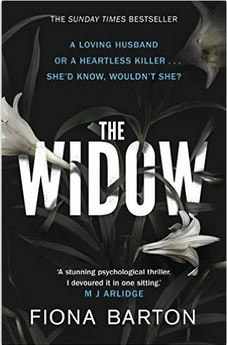 This week's blog post is a book review of 'The Widow', Fiona Barton's first novel. The book was published in 2016 and has achieved both Sunday Times and New York Times bestseller status. It's billed as 'the ultimate psychological thriller... a terrifically chilling exploration of the darkness at the heart of a seemingly ordinary marriage.' Wow! When I read that, I decided this novel was right up my street, both as the kind of book I like to read and also to write.. Here's the description from Amazon: 'We've all seen him: the man - the monster - staring from the front page of every newspaper, accused of a terrible crime. But what about her: the woman who grips his arm on the courtroom stairs – the wife who stands by him? Jean Taylor’s life was blissfully ordinary. Nice house, nice husband. Glen was all she’d ever wanted: her Prince Charming. Until he became that man accused, that monster on the front page. Jean was married to a man everyone thought capable of unimaginable evil. But now Glen is dead and she’s alone for the first time, free to tell her story on her own terms. Jean Taylor is going to tell us what she knows.' Sounds gripping, doesn't it?'The Widow' doesn't disappoint. I read it in one sitting, forcing my eyes to stay open one night as I devoured the contents into the small hours. I loved Fiona's depiction of the two main characters, Glen and Jeanie Taylor. Glen is a petty, self-absorbed tyrant. His persona is wonderfully drawn, shown through the myriad ways he controls Jeanie and his failure to accept responsibility for his actions. Everything is someone else's fault, never his. (Don't we all know people like that?!) He attributes his dismissal from his bank job to his boss's jealousy rather than his unsatisfactory performance. When he's put on trial, he bills himself as a victim of police harassment. According to him, his obsession with child pornography is a medical condition for which he needs help. Not, of course, a sign of his warped nature, one that he keeps well-hidden. Here is a man who is outwardly unremarkable, yet, as the book asks, is he also a paedophile and a murderer? And is Jeanie complicit in his misdeeds? The domineering Glen is mostly seen through the recollections of his down-trodden wife, who is a masterpiece of characterisation, expertly portrayed though subtle nuances. Jeanie adores her husband at first but her love fades as she realises the kind of man she has married. It's not long, though, before the reader starts to feel she may be hiding her own dark side. In addition, she might know more about Bella Elliott's disappearance than she's revealing. The only flaw, for me, was that she comes across as older than her age, which jars at times. This may be deliberate, to emphasise Jean's unworldliness, but if so, I think it's overdone. It's not just that her name would be more appropriate for an older woman. At times Jean behaves like a stereotypical pensioner, so much so that when the narrative refers to her as being thirty-seven, it comes as a shock. Well, to me, anyway. An impressive debut novel 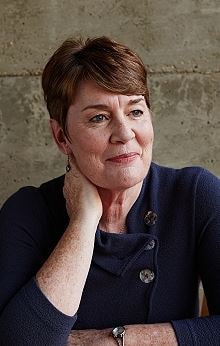 Fiona Barton, courtesy of her website Fiona Barton, courtesy of her website As a foil to Glen and Jeanie, the other central characters of journalist Kate Waters and DI Bob Sparkes are more crudely drawn. Sparkes is almost like a caricature of a detective inspector, and his scenes didn't come alive for me. Kate is a more convincing character, although hard to like. Ruthless in pursuit of a scoop for her newspaper, she's hard as nails despite the caring persona she projects. The descriptions of unsavoury press behaviour are hard to stomach, as they frequently descend into harassment and trial by media. Fiona Barton used to be a journalist, so the antics she depicts are presumably realistic, yet in my view they're abhorrent. Those wanting thrills a minute and a high body count may be disappointed by this book. The story focuses more on Jeanie's character development rather than delivering a plot rollercoaster. There are no twists as such - the ending is fairly obvious from early on - and few startling revelations. That's not the strength of this novel. The interest lies more in the reader exploring every nook and cranny of Jeanie's mind, in understanding why she gradually turns against her husband during the course of her marriage. As a first novel, it's impressive, and I look forward to reading more from this author. Fiona Barton is a former journalist who has worked for the Daily Mail, Daily Telegraph and The Mail on Sunday. In the latter role she won Reporter of the Year at the National Press Awards. She gave up her job to volunteer in Sri Lanka and has worked with exiled journalists all over the globe. The idea for 'The Widow' came from time spent during her journalistic career covering famous trials. Fiona began to wonder what the wives of the accused knew or allowed themselves to know about the crimes in question. Fiona lives with her husband in rural France and has written several other novels. You can find out more at her website: http://fionabartonauthor.com/ This week I'm delighted to welcome novelist Karen Long to my blog. Karen Long is a Midlander by birth and now lives in Shropshire. She took up full-time writing many years ago and dedicates her days to writing crime fiction and observing nature. Her first novel, 'The Safe Word', reached the Amazon bestsellers' list and has now been followed by the second and third in the Eleanor Raven series, 'The Vault' and 'The Cold Room'. It's great to have you here, Karen, so let's get started! Here's my first question: Will there be a set number of books in the Eleanor Raven series? If so, how many?It was always my intention to create a series of three novels that were linked thematically. The series takes place over the span of eighteen months and shares the same cast of characters and place but deals with a separate central story. All three books have now been published. I don’t intend to drop the Eleanor Raven character but have no plans for book four any time soon. Do you share any character traits with DI Eleanor Raven?Ah, that’s difficult. It would be disingenuous to suggest that there aren’t some aspects of the characters I create buried within my psyche. I don’t think I feel the anger, or the self-loathing that Eleanor Raven does but I like my independence and feel more comfortable alone than in company. Like Eleanor I am not religious but have an innate need for redemption. I believe most writers amplify their own characteristics when creating; how else can you achieve authenticity? Do you see yourself writing in other genres besides crime fiction? If so, which ones, and what attracts you to them?I like historical fiction and would love to write one but feel a little overawed by the amount of research I’d need to do. I suspect any story would have to be combined with a good murder plot, as I have little leaning towards romance. I have copy of a YA fantasy novel set in Victorian London, which is tucked away in my desk drawer. Every now and then I pull it out with the intention of self- publishing but never quite commit. What’s a typical writing day like for you? Routines, that kind of thing?I am not, in any way, organised as to a writing routine. I harbour a deep sense of guilt regarding my glacial output but have to be completely distraction free. I have an office but like to write in the conservatory, which has a great view of the numerous birdfeeders. Generally, I do write every day and it tends to be late morning into afternoon. How long does it take you to write the first draft of a novel? Are you a plotter, a pantser or somewhere in between? It takes me about seven months to get a first draft completed, and then another couple to complete the second and third drafts. I am not a deadline sort of person, I’m way too vague and unfocussed. I used to write copious notes but found they didn’t really help with plotting. Now I just keep mental images of actions and storylines. What issues have you faced with research and accuracy with setting your books in a different country?It’s very liberating to set your novels in a different environment because it can be moulded into the vision of a cityscape that responds to your plot. That’s not to say that I am lazy with place or time. I always check distances and environments with virtual maps, and read about places from as many sources as possible. I do have a working knowledge of the detailed landscapes and buildings that feature in the novels. However, it is because I am not native to Toronto that I have been able to create a vision from the flavours I experienced. It’s not accurate but then I’m writing fiction, not a travel guide. What do you do to relax after a hard day’s writing?Running, reading and a couple of glasses of wine. Tell us about the rescue work you do with injured and distressed birds.I’m a huge bird fan, particularly of the crow family. I used to have an aviary filled with rooks, magpies, crows and jackdaws, all in various stages of decrepitude but sadly we no longer have any left. Every spring I manage to look after and release a few babies that didn’t quite make their first flight a success. I’ve kept ravens, which are wonderful. All have deliciously dangerous and cantankerous personalities but the mayhem and home destruction can be very alarming and expensive. There are few things more delightful than having a clever wild bird sit on your shoulder and share a biscuit. Thank you, Karen! It's been great talking to you. |
| 'Six Minutes Early' is a suspense novel involving a drug cartel, which aids ISIS in a plan to attack the heartland of the United States. A former Special Operations officer, forced to resign from the Army, leads the planning and attack. I have captured the current political climate in Washington DC and have used some recent events to make a relevant and believable story. This book is another fast-paced, suspense-filled book that will keep you on the edge of your seat. My writers group keeps telling me they’ll miss me when I’m carted away and placed in the witness protection program. I certainly hope they are wrong and I don’t disappear! |
Your books so far have focused on issues of war. Will you write about other themes and in different genres in the future?
Yes, they have but I don’t want people to think they are war books. I have been asked many times if some of my characters will return in another story. I would like to bring them back and have a few ideas to do just that. For the time being, I think I will stay in the suspense genre. Yes, that is a broad area and one I like and enjoy writing. I may bring a character(s) back for a crime story or mystery. For now, I have several ideas that incorporate politics, history, and current events. There is so much going on in the world now that you can’t make up. It is ripe for storytelling!
How does your writing fit in with your non-writing life?
That is a good question. If you ask my wife, she’ll tell you it infringes too much. I look at it as a full-time job and I am focused on the story at hand. It is time consuming, but if you want a good product, you must devote the time. I do get involved in a story and probably do drive everyone nuts until it is finished. How do you see your writing career progressing?
What are your literary aims and ambitions?
| I plan to continue writing a book about every year or eighteen months. I want to continue growing as a writer, giving my readers quality stories that are believable and keep them on the edge of their seats. My stories are well suited for film and I would love to see them made into movies. I would like to do a series someday. I am focused on the long-term, growing and keeping my readers. So far, the reviews have been great and I am very pleased with the feedback. |
What's been the most joyful part to date of being a novelist?
The most joyful is getting my books published and reading the reviews. My mother, wife, and daughters are very proud of my accomplishments. That in itself is very gratifying. Some of my old friends and classmates are not only astounded that I am published but elated as well. I guess I just surprised everyone.
What are your top three strengths (as a person, not just as a writer)? Your top three weaknesses?
My top three strengths are: I am very tenacious; I have great attention to detail; and I am disciplined. I want to produce quality work. Sometimes my tenaciousness and attention to detail consume too much time. My three weaknesses are: I get impatient at times; I fret too much over the small things, which I have no control over; and incompetence drives me crazy. I do work on these weaknesses and try to keep them in check.
Thanks, Patrick! It's been a pleasure interviewing you.
Wow, those strengths and weaknesses mirror my own! Want to know more about Patrick and his books? Visit his website at http://patrickparkerbooks.wixsite.com/author
I’m delighted to welcome horror and thriller author Iain Rob Wright to my blog today! Iain was born in 1984 and is the author of several novels, including the apocalyptic, critically acclaimed 'The Final Winter' and the deeply disturbing thriller 'ASBO'. Iain is also a member of The Horror Writers Association. So let's start!
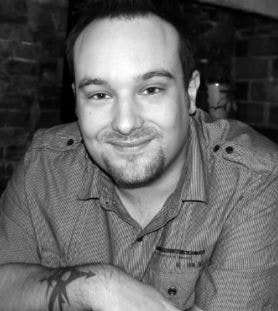
Iain, tell us about yourself, please.
A few years ago, I was a phones salesman. Due to being a bit of an emotional wreck during my teen and young adult years, I had dropped out of the Army, university, and pretty much out of life. The one thing and only thing I had going for me was the woman who is now my wife. Her support and belief in me led to her pushing me into doing what I’d always dreamed of. She made me start writing in my spare time more and more, and most importantly she made me stay the course and actually finish a novel in full instead of constantly giving up halfway. Now, two and a bit years later, I have twenty-five novels out and am earning more than twice what I did working nine to five in a job I hated. Self-publishing very literally changed my life – it made me richer, happier, and less stressed (when considering how working in sales used to make me feel).
Have you always wanted to be an author? How did your interest in writing originate?
I would write awful stories as a kid that were pretty much just blatant rip offs of movies, but I enjoyed the act of writing and moved on to poetry as a teen. I’ve been an avid reader and movie watcher my entire life and really wanted to tell stories that moved people the way I had been moved.
What have been the greatest problems you've faced in gaining your success?
It’s difficult riding on the high that I am right now, because I want to plan ahead based on my current fortunes, but the way this business is, next year I could be a failure and having to go get a job. The hardest part of this job is not knowing what the future holds. There’s no contract of employment.
Who or what has helped you the most on your writing journey?
The author Joe Konrath has been instrumental in my success. When I started out, I followed the publishing/writing advice on his blog about pretty much everything. Everything he advised worked for me and I have now reached a point where I am trying new things out for myself and passing on that advice to the new guys coming up. I think if established guys all do their bit to help the newer guys get better then everyone benefits; and Joe Konrath is the absolute embodiment of that philosophy.
Who's your favourite author and what is it that resonates with you about their work?
I don’t really have one as it changes so much. I’m currently enjoying Matthew O’Reilly’s work, but in the past, my favourite authors have been Jeff Strand, Jack Kilborn, Brian Keene, Stephen King, James Herbert, Richard Laymon, J F Gonzalez, Kim Paffenroth, Scott Sigler, Max Brooks, Blake Crouch, Terry Pratchett… The list goes on and on.
Tell us more about your collaboration with Joe Konrath on the novel ‘Straight Up’. How did that come about?
Joe publicly announced that he was looking for collaborators and wanted short stories to be the test for authors to pass in order to work with him on longer projects. I wrote 'Straight Up' specifically to work with him but also used it as an introduction for one of my own characters, Sarah Stone. I have also just finished a full length novel that Joe and I have been working on, which is a sequel to both Joe’s 'Origin' and my own 'Final Winter'. It’s loads of fun.
A few years ago, I was a phones salesman. Due to being a bit of an emotional wreck during my teen and young adult years, I had dropped out of the Army, university, and pretty much out of life. The one thing and only thing I had going for me was the woman who is now my wife. Her support and belief in me led to her pushing me into doing what I’d always dreamed of. She made me start writing in my spare time more and more, and most importantly she made me stay the course and actually finish a novel in full instead of constantly giving up halfway. Now, two and a bit years later, I have twenty-five novels out and am earning more than twice what I did working nine to five in a job I hated. Self-publishing very literally changed my life – it made me richer, happier, and less stressed (when considering how working in sales used to make me feel).
Have you always wanted to be an author? How did your interest in writing originate?
I would write awful stories as a kid that were pretty much just blatant rip offs of movies, but I enjoyed the act of writing and moved on to poetry as a teen. I’ve been an avid reader and movie watcher my entire life and really wanted to tell stories that moved people the way I had been moved.
What have been the greatest problems you've faced in gaining your success?
It’s difficult riding on the high that I am right now, because I want to plan ahead based on my current fortunes, but the way this business is, next year I could be a failure and having to go get a job. The hardest part of this job is not knowing what the future holds. There’s no contract of employment.
Who or what has helped you the most on your writing journey?
The author Joe Konrath has been instrumental in my success. When I started out, I followed the publishing/writing advice on his blog about pretty much everything. Everything he advised worked for me and I have now reached a point where I am trying new things out for myself and passing on that advice to the new guys coming up. I think if established guys all do their bit to help the newer guys get better then everyone benefits; and Joe Konrath is the absolute embodiment of that philosophy.
Who's your favourite author and what is it that resonates with you about their work?
I don’t really have one as it changes so much. I’m currently enjoying Matthew O’Reilly’s work, but in the past, my favourite authors have been Jeff Strand, Jack Kilborn, Brian Keene, Stephen King, James Herbert, Richard Laymon, J F Gonzalez, Kim Paffenroth, Scott Sigler, Max Brooks, Blake Crouch, Terry Pratchett… The list goes on and on.
Tell us more about your collaboration with Joe Konrath on the novel ‘Straight Up’. How did that come about?
Joe publicly announced that he was looking for collaborators and wanted short stories to be the test for authors to pass in order to work with him on longer projects. I wrote 'Straight Up' specifically to work with him but also used it as an introduction for one of my own characters, Sarah Stone. I have also just finished a full length novel that Joe and I have been working on, which is a sequel to both Joe’s 'Origin' and my own 'Final Winter'. It’s loads of fun.
Tell us more about your thriller series featuring your character Sarah Stone.
She is a broken woman with a painful background. She is also an expert on Middle Eastern terrorist cells, which is why the Major Crimes Unit tracks her down and asks for her help. The only problem is that she’s a complete asshole and doesn’t want to help anybody. Eventually she gets roped in and starts kicking butts and taking names. She is a lot like Jack Bauer but with a very wobbly moral compass. She won’t think twice about killing a bad guy. Eventually all of the hate and hostility inside her will begin to take its toll.
Will you write in other genres besides horror/thriller in the future?
Yes, I switched over to techno-thrillers/terrorism books (featuring Sarah Stone) for a short while, but I imagine horror is where my career will lie for the most part.
Sounds great! While you are writing, do you ever feel as if you are one of the characters?
Not really, but sometimes I do act out scenes at my desk to get the emotion right.
What inspired you to write your first book?
Not wanting to work in a phone shop anymore!
How do you come up with the titles for your books?
Through hours of sitting there trying to think of one. I find naming books really hard. Sometimes I have the title before I even start, but sometimes I am wracking my brains right up to the day it goes live.
What books have most influenced your life most?
Erm…The Rising, World War Z, The Rats, Under The Dome, Contagion. Only in that they made me want to write horror.
And which person?
Joe Konrath, Stephen King, and Joss Whedon.
If you had to choose, which writer would you consider a mentor?
Need you ask? Joe Konrath.
Is there anything you find particularly challenging in your writing?
Just trying to improve with every book. I know I’m not perfect, but I’m trying really hard to be.
Lastly, how do you see the future for self-published authors?
Bright! What still makes me sad, though, is that there are many decent, talented authors out there who have not had the same success. I want to see more of them stuff their unfulfilling day jobs and live their own dreams – because, right now, it is more possible than ever.
Thank you, Iain, for agreeing to appear in my blog!
You can find out more about Iain and his novels from his website, www.iainrobwright.com; on Facebook or on Twitter: @iainrobwright. Iain's novels are all available from Amazon.
She is a broken woman with a painful background. She is also an expert on Middle Eastern terrorist cells, which is why the Major Crimes Unit tracks her down and asks for her help. The only problem is that she’s a complete asshole and doesn’t want to help anybody. Eventually she gets roped in and starts kicking butts and taking names. She is a lot like Jack Bauer but with a very wobbly moral compass. She won’t think twice about killing a bad guy. Eventually all of the hate and hostility inside her will begin to take its toll.
Will you write in other genres besides horror/thriller in the future?
Yes, I switched over to techno-thrillers/terrorism books (featuring Sarah Stone) for a short while, but I imagine horror is where my career will lie for the most part.
Sounds great! While you are writing, do you ever feel as if you are one of the characters?
Not really, but sometimes I do act out scenes at my desk to get the emotion right.
What inspired you to write your first book?
Not wanting to work in a phone shop anymore!
How do you come up with the titles for your books?
Through hours of sitting there trying to think of one. I find naming books really hard. Sometimes I have the title before I even start, but sometimes I am wracking my brains right up to the day it goes live.
What books have most influenced your life most?
Erm…The Rising, World War Z, The Rats, Under The Dome, Contagion. Only in that they made me want to write horror.
And which person?
Joe Konrath, Stephen King, and Joss Whedon.
If you had to choose, which writer would you consider a mentor?
Need you ask? Joe Konrath.
Is there anything you find particularly challenging in your writing?
Just trying to improve with every book. I know I’m not perfect, but I’m trying really hard to be.
Lastly, how do you see the future for self-published authors?
Bright! What still makes me sad, though, is that there are many decent, talented authors out there who have not had the same success. I want to see more of them stuff their unfulfilling day jobs and live their own dreams – because, right now, it is more possible than ever.
Thank you, Iain, for agreeing to appear in my blog!
You can find out more about Iain and his novels from his website, www.iainrobwright.com; on Facebook or on Twitter: @iainrobwright. Iain's novels are all available from Amazon.
I'm delighted to welcome novelist Peter James to my blog today! Peter is the author of the best-selling crime thrillers featuring Brighton-based Detective Superintendent Roy Grace, which have sold 18 million copies worldwide. Peter also writes supernatural fiction, such as 'The House on Cold Hill', a book I enjoyed very much. Welcome to my blog, Peter! With no further ado, let's proceed with the interview.
To what extent does DS Roy Grace reflect aspects of your own personality?
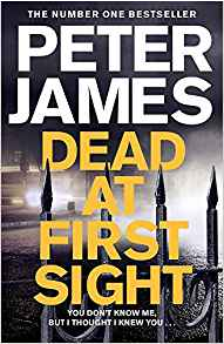
Roy Grace is based very loosely on former Chief Superintendent David Gaylor of Sussex CID. I was lucky enough to shadow David for many weeks over several years, during which he rose from Detective Inspector to Detective Superintendent. His office is Roy Grace’s office, and one of his areas of specialization was cold cases – also shared by Grace. But there the similarity ends – David is happily married and has no particular interest in the occult – although he is very open minded. I like Roy Grace the most of any character I have created, and there is a lot of myself in him. I’m in some ways quite a loner, too. I have a fascination for the paranormal. I share his views when he attacks bigots, when he attacks horrible architecture, or when, in ‘Not Dead Enough’, he launches into a tirade at the terrible state of our hospital in Brighton, the Sussex County. Roy Grace is a man who believes that we all have an obligation, with our lives, to try to leave the world a slightly better place than when we first came into it. That’s my view and it is partly why I write, to examine and try to understand better the world we live in and why people do the things they go. But I do also love the terrible Norman Potting. He is able to say all kinds of politically incorrect things that can no longer be said!
Out of all your antagonists, who’s been the most fun for you to create, and why?
Jodie in ‘Love You Dead’, and Dr Crisp in ‘You Are Dead’. Jodie is inspired by a woman I met in a prison, who murdered her husband and mother-in-law; she is so evil she makes you smile at her audacity. Similarly, I like Doctor Edward Crisp’s combination of charm, quirkiness and utter evil – modelled on someone I know who is in a different profession.
What’s been your most challenging novel when it comes to plotting, and why?
‘Dead Like You’ because it took place in two different time periods which was very complicated.
How does your writing day shape up? Lark or Owl? Plotter or Pantser?
My whole writing day is back to front… It is from the time when I was writing novels whilst working full time in film and television as a screen writer and producer, so I had to make my “Me time” to write. My writing day starts at 6pm in the evening, when I mix a large vodka martini, with four olives, put on some music, light up a cigar and get into a zone. I try to ensure that whatever I’m doing I leave myself time to write 1,000 words 6 days a week. In terms of research – a lot I do before, but then as I progress I realise there is more I need to learn, and I’m an absolute stickler for research.
In the past, you’ve been very involved in film production. Do you see yourself returning to working in the film industry in the future?
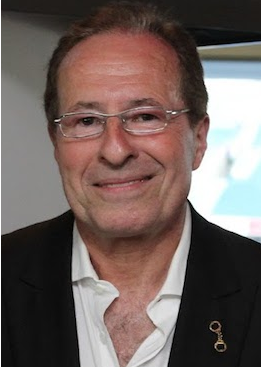 Novelist Peter James
Novelist Peter James I was a film producer for many years but I realized in 2005, shortly after making the film I'm most proud of, Merchant Of Venice with Al Pacino and Jeremy Irons, that actually, I much prefer writing novels. The problem with films is that they are such a collaborative process; it becomes almost like a committee, but up to 20 people who each believe it is their film! For example you have the screenwriter, and very often a second screen writer or “polisher”, the producer – sometimes two or even more. The executive producers, again sometimes two or more, the director, the principal actors, the director of photography, the set designer, the editor, the composer, the distributor and so on. Each and every one of these has influence on the end product. And most normally have egos the size of aircraft carriers.
With a book the creative process is utterly pure. There is just myself and my agent and my editor. If I don’t want to change one single word I have written I don’t have to. I love that freedom from the “committee” process of film-making. I’d be very happy never to be involved in that industry again!
With a book the creative process is utterly pure. There is just myself and my agent and my editor. If I don’t want to change one single word I have written I don’t have to. I love that freedom from the “committee” process of film-making. I’d be very happy never to be involved in that industry again!
Have you always been interested in the paranormal, or does your curiosity stem from your haunted house in Ditchling?
Yes, I’ve always had an open on mind on the supernatural and I’ve met countless normal, rational people who have had something happen, at some point in their lives, for which they have no rational explanation. 'The House On Cold Hill' is very much inspired by – and modelled on – the isolated historic house in Sussex that my former wife and I bought in 1989 that you refer to, and I lived in for a decade – which turned out to be very seriously haunted. Whilst I have never actually seen a ghost, there were things that happened at that house I really couldn’t explain. I saw on many occasions, tiny pinpricks of white light floating in the air. A medium who I used a lot during my writing of 'Possession', visited my house and she told me I was slightly psychic, and that is why I saw these pinpricks, and that while I was not actually seeing the entire apparition, I was picking up on some of its energy.
Tell us about the work you do with the charity The Reading Agency.
I hugely support the Reading Agency, which tries to raise the standard of literacy in our nation. It’s a terribly sad statistic that the average reading age in a UK prison is currently equivalent to that of a nine-year-old child. I give talks to help people with reading difficulties and I also give talks in prisons every year to try to encourage literacy among prisoners.
Like me, you’re passionately fond of animals. Tell us about your new venture into keeping alpacas!
My wife and I spent time with my publicist, Tony Mulliken, and his wife Pam at their home and they keep 6 alpacas. We saw what lovely creatures they are and we have a paddock at our Sussex home that was empty, so we decided to look into getting some of our own. We researched far and wide, and found an amazing local breeder, Spring Farm Alpacas, in Fletching, who care so well for their herd. They are hugely passionate about all the animals and know them all by name. Our 5 boys arrived a while ago and we just love them! They are very inquisitive creatures and full of character, they make us laugh every day!
Also like me, you’re a foodie. What’s your favourite savoury food? Favourite sweet dish?
Savoury: oysters and anchovy olives. Sweet: peanut M & Ms!
You love cars. Are there any racing or driving ambitions you’ve yet to achieve?
I love cars and in particular, historic motor racing, so my dream is to win the Saint Mary’s Trophy at the Goodwood Revival!
Thank you, Peter, for a great interview! It's been a pleasure talking to you.
You can find and follow Peter on :
Website: www.peterjames.com
Facebook: http://www.facebook.com/peterjames.roygrace
Twitter: http://twitter.com/peterjamesuk
Instagram: https://instagram.com/peterjamesuk
YouTube channel: www.peterjames.com/YouTube
Website: www.peterjames.com
Facebook: http://www.facebook.com/peterjames.roygrace
Twitter: http://twitter.com/peterjamesuk
Instagram: https://instagram.com/peterjamesuk
YouTube channel: www.peterjames.com/YouTube
Categories
All
Author Interviews
Book Reviews
Let's Discuss!
Sundry
The 'Five' Series
The Writing Process
Subscribe to my blog!
Via Goodreads
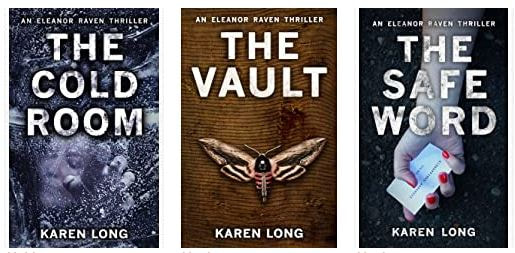
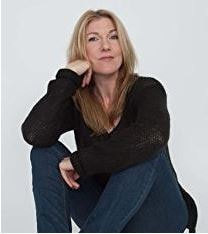
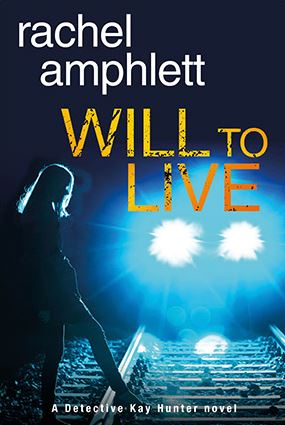
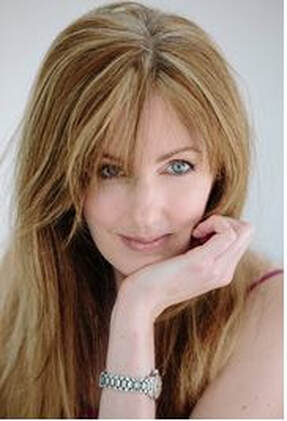
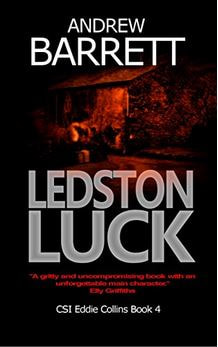
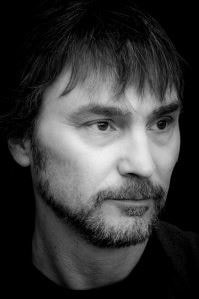
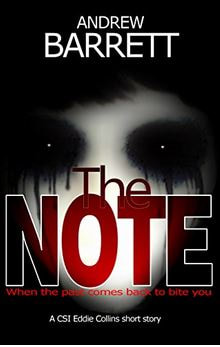
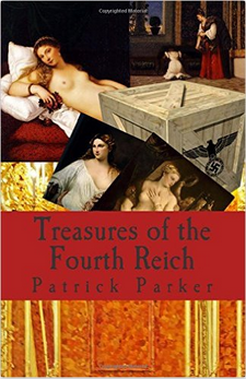
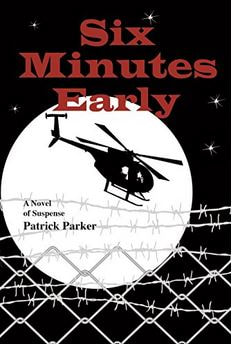
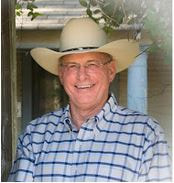
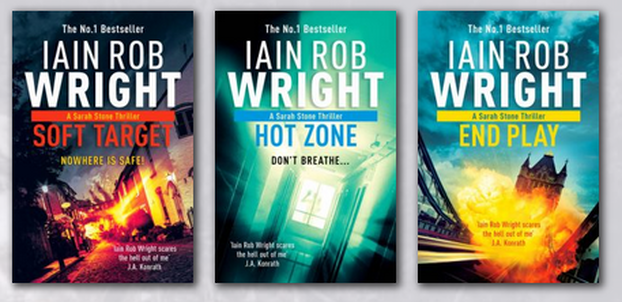
 RSS Feed
RSS Feed
